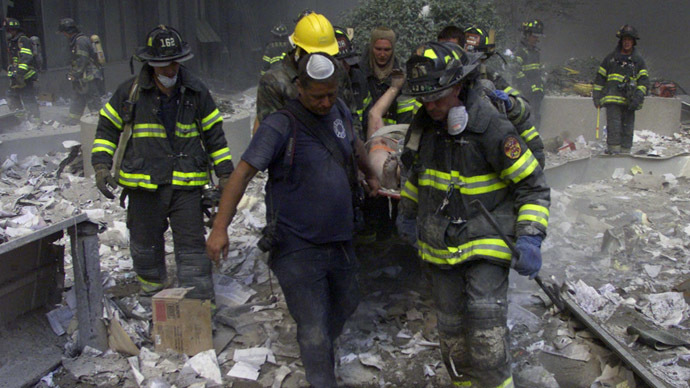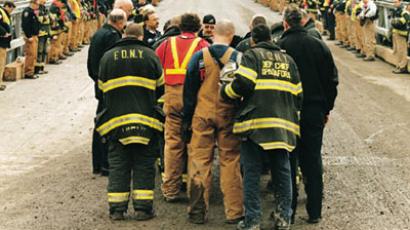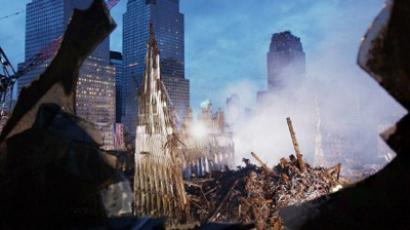New figures show 9/11 cancer cases have doubled among first-responders

The number of emergency workers and first responders who have developed different types of cancer after being at Ground Zero in the aftermath of the September 11, 2001 terrorist attacks has doubled since last year.
According to the New York Post, more than 2,500 first responders and other rescuers who took to the site of the former World Trade Center after the 9/11 attacks have been diagnosed with cancer.
The Post reported on Monday that new data from Mount Sinai Hospital’s World Trade Center Health Program reveals a staggering surge in cancer cases during the last year. New data, the Post reported, includes 1,655 rescue workers from a poll of 37,000 Ground Zero first-responders who have developed cancer in the last 13 years. When those figure it combined with firefighters and EMTs, the dastardly total climbs to 2,518.
Now nearly a decade-and-a-half after the 9/11 tragedy, new cases of first-responder cancer seem to be increasing over time. According to the Post, last year only 1,140 cases of 9/11-related cancer were on file. With the publishing of the latest data, that statistic seems to actually be double last year’s figure.
Even still, only a fraction of these first-responders have applied to receive benefits through the 9/11 Victim Compensation Fund established after the terrorist attacks. The Post reports that the VCF has heard from only 1,145 applicants who seek compensation for cancers developed since 9/11, and of those, only 811 have so far been accepted. Once approved, it takes years for the fund to actually provide substantial compensation, however.
“I’m grateful for it,” one first-responder and VCF recipient told the Post of his benefits package, which includes $250,000 for pain and suffering. “I just don’t understand why they’re making everyone wait two years.” According to the paper, that fund has so far compensated first-responders to the tune of $50.5 million, and many more are expected to file for coverage ahead of the next deadline for entering claims on October 12.
Many of those first-responders, in fact, have previously been barred from applying for compensation through the $2.8 billion Victims Compensation Fund. Up until February, health officials declined to include brain cancer, pancreatic cancer, testicular cancer and invasive cervical cancer as diseases covered by the VCF.
"The administratorestimatesthe costs of medical treatment for the four cancers now considered eligible under the definition of rare cancers, as well as screening costs associated with invasive cervical cancer, to be between $2,287,933 and $4,933,280 annually for 2014 through 2016," the Dept. of Health and Human Services said earlier this year when they updated the list of approved cancers.
Meanwhile, those diseases continue to take their toll on rescue workers who risked their lives on 9/11. Earlier this year, the New York State Police Officers' Memorial in Albany, NY was amended to include the names of 13 cops who were on the scene at Ground Zero and later developed and died from related illnesses.
“If you’re looking at guys who are 30 or 40 years old who spent so many hours at Ground Zero and are coming down with cancer, it doesn’t take a scientist to see that something was wrong down there,”one of those cops, Charles J. Wassil of the Peekskill Police Department, told the Daily Voice before he passed away in 2013 of illnesses incurred at Ground Zero.“Federal studies say a lot of things. They tell you a vitamin is good for you and they two years later they’ll say you shouldn’t have taken it.”














